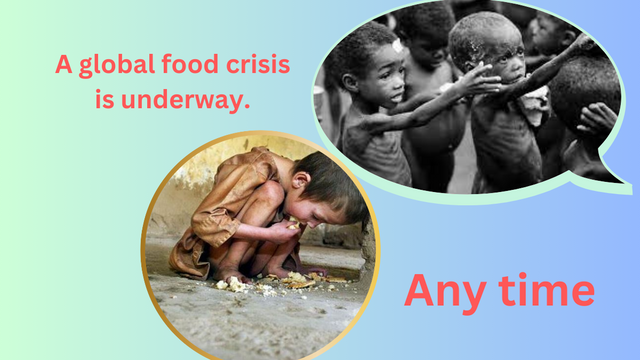Food Grains are Decreasing Day by Day: A Global Crisis Unveiled in future
Food Grains are Decreasing Day by Day : In a world where food is a fundamental necessity, the dwindling availability of food grains poses a significant threat to global well-being. As we dive into the intricacies of this issue, it becomes clear that addressing the decline in food grains is paramount for the sustenance of humanity.

Factors Contributing to the Decline
Climate Change Impact
Climate change disrupts traditional agricultural patterns, leading to erratic weather conditions and decreased crop yields. Unpredictable shifts in temperature and precipitation pose challenges to farmers, impacting the quantity and quality of food grains.
Agricultural Practices
Outdated and unsustainable farming methods contribute to soil degradation and reduced fertility. The excessive use of pesticides and synthetic fertilizers further compounds the issue, affecting the overall health of agricultural ecosystems.
Global Population Growth
The ever-growing global population puts immense pressure on food resources. As more mouths to feed emerge, the demand for food grains escalates, exacerbating the challenge of meeting the nutritional needs of a burgeoning population.
Consequences of Decreasing Food Grains
Food Insecurity
Diminishing food grain supplies result in increased food insecurity, particularly in vulnerable communities. Access to nutritious food becomes a luxury, leading to malnutrition and related health issues.
Economic Implications : Food Grains are Decreasing Day by Day
The agricultural sector, a vital component of many economies, faces the brunt of decreased food grain production. This downturn ripples across various industries, affecting livelihoods and economic stability.
Environmental Impact
Unsustainable agricultural practices not only deplete soil health but also contribute to deforestation and biodiversity loss. The environmental toll of food grain decline extends beyond the farm, affecting ecosystems on a global scale.
Strategies to Address the Issue : Food Grains are Decreasing Day by Day
Sustainable Agriculture Practices
Implementing sustainable farming techniques, such as organic farming and agroforestry, promotes soil health and biodiversity. These practices contribute to long-term food security while minimizing environmental impact.
Technological Innovations
Embracing technology, such as precision agriculture and smart irrigation systems, enhances efficiency and productivity. Innovation plays a pivotal role in overcoming the challenges posed by climate change and ensuring a stable food supply.
Policy Interventions
Governments and international organizations must enact policies that support sustainable agriculture, regulate the use of harmful chemicals, and incentivize environmentally friendly practices. Policy frameworks should prioritize long-term food security over short-term gains.
Role of Global Community : Food Grains are Decreasing Day by Day
Collaborative Initiatives
International collaboration is essential to tackle the global nature of the issue. Governments, NGOs, and private sectors must work together to share knowledge, resources, and technologies for the benefit of all.
International Aid and Support
Providing aid to regions facing acute food shortages is crucial. International organizations should mobilize resources to assist communities in developing sustainable agricultural practices and adapting to changing climate conditions.
Solutions at the Individual Level
Consumer Awareness
Educating consumers about the impact of their food choices empowers them to make environmentally conscious decisions. Supporting local, sustainable agriculture and reducing food waste are tangible ways individuals can contribute to the solution.
Sustainable Lifestyle Choices
Individuals can adopt sustainable lifestyles by reducing meat consumption, minimizing food waste, and supporting eco-friendly products. Small changes in daily habits collectively contribute to a more sustainable and resilient food system.
Case Studies : Food Grains are Decreasing Day by Day
Successful Initiatives
Examining successful initiatives worldwide provides valuable insights into effective strategies. Case studies showcasing communities that have successfully addressed food grain decline offer practical lessons for broader implementation.
Lessons Learned
Understanding the challenges faced and lessons learned from previous endeavors helps refine future approaches. Analyzing both successes and failures contributes to a more nuanced and effective global strategy.
Future Outlook
Potential Solutions
Technological advancements, evolving agricultural practices, and heightened global awareness offer hope for addressing the food grain crisis. Continued research and innovation can pave the way for sustainable solutions to ensure future food security.
The Road Ahead
Collaborative efforts at the local, national, and international levels will shape the trajectory of our food system. Adapting to changing circumstances and embracing innovative solutions will be crucial on the road to a more sustainable and resilient future.
Engaging the Readers: Personal Reflections
Personal Connection to the Issue
Reflecting on our individual connection to the food we consume fosters a sense of responsibility. Recognizing the impact of our choices encourages a collective effort towards a sustainable and secure food future.
Call to Action
As we delve into the complexities of decreasing food grains, let this serve as a call to action. Each one of us plays a role in shaping the future of our food system. Together, we can contribute to a more resilient and sustainable world.